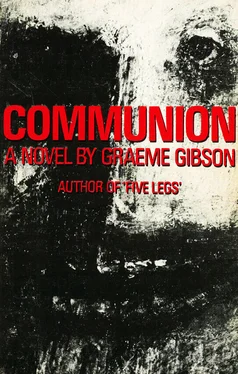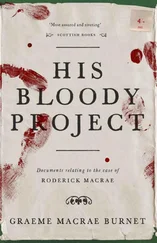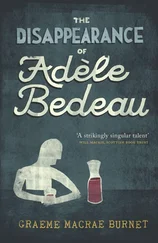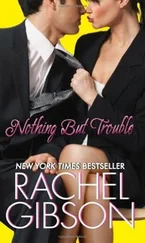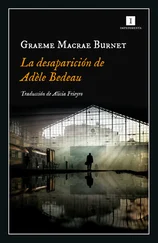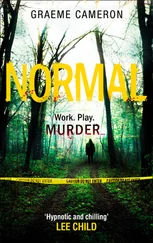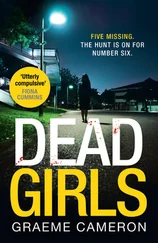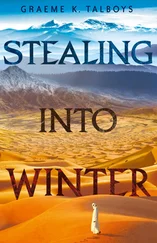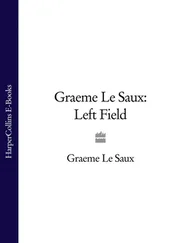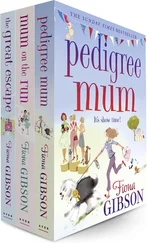Graeme Gibson - Communion
Здесь есть возможность читать онлайн «Graeme Gibson - Communion» весь текст электронной книги совершенно бесплатно (целиком полную версию без сокращений). В некоторых случаях можно слушать аудио, скачать через торрент в формате fb2 и присутствует краткое содержание. Город: Toronto, Год выпуска: 2012, ISBN: 2012, Издательство: House of Anansi Press Inc., Жанр: Современная проза, на английском языке. Описание произведения, (предисловие) а так же отзывы посетителей доступны на портале библиотеки ЛибКат.
- Название:Communion
- Автор:
- Издательство:House of Anansi Press Inc.
- Жанр:
- Год:2012
- Город:Toronto
- ISBN:978-1-77089-346-7
- Рейтинг книги:5 / 5. Голосов: 1
-
Избранное:Добавить в избранное
- Отзывы:
-
Ваша оценка:
- 100
- 1
- 2
- 3
- 4
- 5
Communion: краткое содержание, описание и аннотация
Предлагаем к чтению аннотацию, описание, краткое содержание или предисловие (зависит от того, что написал сам автор книги «Communion»). Если вы не нашли необходимую информацию о книге — напишите в комментариях, мы постараемся отыскать её.
The narration proceeds in haunting rhythms which make it mesmerizing reading. By the end, they rise to a harrowing and purgative intensity.
Communion — читать онлайн бесплатно полную книгу (весь текст) целиком
Ниже представлен текст книги, разбитый по страницам. Система сохранения места последней прочитанной страницы, позволяет с удобством читать онлайн бесплатно книгу «Communion», без необходимости каждый раз заново искать на чём Вы остановились. Поставьте закладку, и сможете в любой момент перейти на страницу, на которой закончили чтение.
Интервал:
Закладка:
Very close to them now, he pauses: still looking from one to the other he comes to sit between them on the bench, right in the middle. That’s important. One day at the beginning he measured the full length of the bench. It’s fourteen feet long. Then he found the exact centre by walking seven feet from the end: with a whitewashed rock from the flower bed, making certain he was unobserved, he scratched his mark into the stone. It’s still there. And he’s come to sit precisely on it, every lunch hour for months.
Felix sitting with a buttock on either side of the exact centre of the bench; reaching into the bag for his lunch. Perhaps they don’t care: he can’t believe that. Biting into a meat sandwich, he knows it’s important that when he first arrives, he sits in the dead centre like this. He mustn’t show any preference until he’s finished eating. In the same way, they continue staring through him, at each other, as if he wasn’t there. Methodically he eats. He chews his food well and washes down the wads of bread and meat with orange juice. Afterwards, when he’s finished, when they’ve got this stasis to support them, he can, and usually does nestle up close to either one or the other: he can spend all his time talking to one of them, with nothing more than mere courtesy for the other, and sometimes not even that; sometimes he becomes so preoccupied with one, with the intimacy they have, the excitement, that he ignores her sister completely, and still there’s no awkwardness. Even when he leans to circle a nipple with his mouth, or when he fondles the breasts, the belly, rubs his hands longingly over her thighs, even when he kneels on the bench beside her and takes the stone face in both his hands and covers it with kisses, poking his tongue in at the mouth, her eyes, licking her jaw greedily to the ear, even with all this, there’s never a hint of jealousy. It’s worked out very well.
The limousine, black and official, the sun glinting from its polished surface, slips through the trees before he sees it: next, and close behind, comes the hearse. They make no sound and Felix, eating his apple, is at first unaware of them. When he does look down, when he sees them, more cars have come over the hill, big rented cars with important mourners, and the procession, in slow motion, glides among the headstones. For a moment he believes they’ll go to their left, follow the road that swings away to his right and into the cemetery’s heart. But they don’t, they take the other fork. One after the other. In complete silence: they pass from right to left in front of him. He can hear them now, can see faces looking at that young man sitting between two stone figures on a memorial bench eating an apple.
The first car stops at the public mausoleum, then the others, the line contracts: figures clamber from the black limousines at the front and he suddenly remembers the chapel, sort of a chapel inside, a vacant-smelling room, like a courtroom, with pews and an altar for the body. He understands. Behind the screens on either side run halls, four to the north and four to the south, high-ceilinged halls, their only light from frosted windows at the end; he’s walked them often, he’s read the names, peered into cells at plastic wreaths, at mouldering flowers, he’s breathed the dead air and stared at corpses filed in drawers to the roof.
Voices suddenly, doors slamming and Felix averts his eyes as people, singly and in groups, march from their cars: soberly dressed, they straggle to the steps, to the hearse brilliant in the sun ahead of them. There are children too; in little hats and ties, with tiny purses and polished shoes, they trot beside the adults, their pinched faces acknowledge him as they go.
A terrible commotion from ahead! Violent cries indistinct with distance . . . there’s shouting near the coffin, it’s at the door now: scuffling feet of mourners at the rear, sensing drama they quicken their pace, literally dragging their children to the bottom steps, the edge of the crowd; impatient they struggle and crane to discover the source of all this shouting, these accusations. Felix is drawn unwillingly. Leaving his friends, they understand, he approaches the crowd: it surges on the mausoleum’s steps, something violent is happening at the door, the crowd convulses. Everyone strains to see. Felix can’t be sure but apparently two people, at least two people, although others are taking sides, two women, he thinks, are at the centre, they’re shouting hysterically, he can’t make out what they’re saying, he can’t even be sure that the two of them are opponents, perhaps they’re taking on everyone else, perhaps there’s more than one centre to this. Apart from it all, hands down by his side, he watches. A child, a little girl in blue velvet and patent leather shoes, a tiny child with brass buttons and long hair, growing tired of the crowd because she can’t see anything, or maybe she’s not bored at all, maybe she’s afraid for even Felix is uncertain, yes, something violent is building, she’s probably afraid, she wanders away from her mother in the direction of Felix. He can’t know if she sees him or whether it’s only chance. The sun shines in her hair, the wet earth sticks to her shoes as she comes. Her mother, greedy to see, clawing into the crowd, hasn’t missed her yet. Felix is transfixed. Turning he sees his friends, the one staring past her sister into his face, and behind them, the gravedigger in his hockey sweater standing by a blue tree. He’s left his shovel somewhere and watches the scene intently. The crowd still boils about the coffin, the voices still shout with more and more of them protesting. The child is crying piteously. She totters aimlessly among the ornamental bushes, the naked hedges by the road. Felix doesn’t know what to do. He should do something. Should he try to find the mother? It would be better if he tried to console the child; but how do you do that? Stories and songs, you tell them stories, dandle them on your knee . . . Felix remembers stories, a long time ago, there was someone, a man, a woman, it doesn’t matter now, perhaps it was a maid, a housekeeper, someone told him stories and that’s the important thing. He remembers liking them; now, because her cheeks are smeared with tears, with dirt from her little hands, he remembers a lap, a heart beating inside someone else’s body; he remembers a voice, or is this all imagination, has he made it all up? a voice telling him of wolves with glittering eyes, they encircle the campfire of a traveller far from home, in winter, an especially deep winter so that food is scarce everywhere and the wolves, desperate with hunger, shift closer as the fire dies: shuddering awake he sees their shadows nearly on him, he can smell their bodies! frantically he throws wood on the coals, sparks fly in the towering night, he shouts but they’ve grown accustomed to his noise and fear him no longer. He has only the fire.
It’s a good story, but it would only work if he knew the child, if they had time, only if she trusted him. Watching the blue velvet jacket, seeing her uncertain body, Felix realizes you can’t force the kind of intimacy necessary for a good story, certainly not with this sad long-haired little girl. He’ll have to think of something else.
Perhaps a trick of some kind would divert her. Years ago there was a person who could eat light bulbs. Felix thinks he’s in New York now. And once he’d seen a man sterilize the point of a safety pin in the flame of his lighter, grasp some of the loose flesh at his throat, just above the Adam’s apple, and push it through. Kids would love that, he’s sure they would, he’d cheer her up alright, if only he could do something like that . . .
It’s definitely too late to turn away now. She’s so close, the dejection in the fall of her shoulders, the despair, yes it’s almost despair he sees in her face, she’s so obviously in pain that he can’t ignore her. The gravedigger, still standing by the evergreen, must see, must know: so there’s no turning away. She’s less than twenty feet from him when her mother calls, she’s finally noticed, the shrill voice carries clearly, and if she continues in the same way she’ll pass within a couple of yards of him. She doesn’t hear her mother and she doesn’t appear to have noticed Felix, or if at some point she did see him, perhaps for some reason she actually set off in his direction at the beginning, it’s fairly clear she doesn’t see him now. He understands that. Partially concealed by her hair, her eyes are empty. She doesn’t respond to her mother, although the woman is rapidly gaining ground on her. It’s a big woman and obviously very upset, worried about her baby, she runs awkwardly, and although the voice is clear and strong, he can’t make out the words. Felix takes a half step, he says: “Your mother. Little girl your mother.” How best to continue? “Your mommy’s calling you.” The only response, and he’s not sure of this either, is an imperceptible quickening of her pace. Surely she must hear the familiar voice calling her name, surely that’s what she wants? But weeping she continues toward him, so Felix takes another step. “Little girl” he says again. He’s getting involved despite himself: he raises an arm, his right arm, he points at the woman who’s stopped shouting now, is slowing down, has stopped calling the child’s name because she’s out of breath, her face is swollen, red, her eyes harsh with unaccustomed effort. But the child will not be warned. Felix has tried, he’s pointed, he didn’t turn away, he’s even spoken to her. It’s not his fault the woman is closing in, is reaching, it’s not his fault the child reacts too late: she dodges, tries to slip away, to free herself from the hand on her blue velvet shoulder, accusing voice, voice and the sudden blow, in the face, she hits the child with her open hand, she hits again, he hears the dead sound of flesh on flesh.
Читать дальшеИнтервал:
Закладка:
Похожие книги на «Communion»
Представляем Вашему вниманию похожие книги на «Communion» списком для выбора. Мы отобрали схожую по названию и смыслу литературу в надежде предоставить читателям больше вариантов отыскать новые, интересные, ещё непрочитанные произведения.
Обсуждение, отзывы о книге «Communion» и просто собственные мнения читателей. Оставьте ваши комментарии, напишите, что Вы думаете о произведении, его смысле или главных героях. Укажите что конкретно понравилось, а что нет, и почему Вы так считаете.
